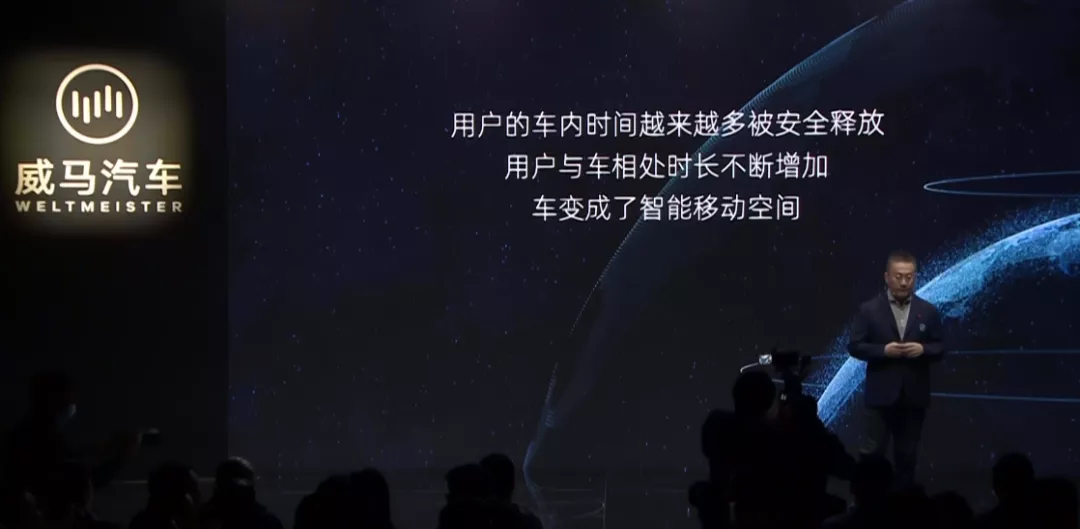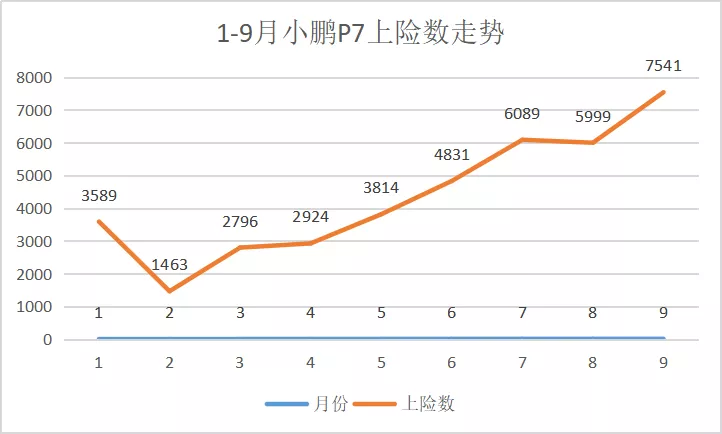Introduction: The arrival of the WmAuto M7 is opportune, both inside and outside.
There are two big highlights in the sales of new energy vehicles in September: first, XPeng and NIO historic breakthrough in monthly sales of over 10,000 vehicles; second, Gaohe HiPhi X’s sales exceeded Porsche Taycan for the first time, taking the sales champion of electric vehicles of luxury brands above 500,000 RMB.
Regarding the first point, it is not surprising that the monthly sales of new energy vehicles exceed 10,000 since the product matrix of new energy vehicles is gradually enriched with the successive import of the third model.
As for the second point, it should be surprising to many people. Compared with other new energy vehicle brands, Huaren Yuntong and Gaohe generally have low levels of attention, but it is just such a low-key new brand and new model that have exceeded the famous Porsche Taycan in sales.
Many people will ask, how did Gaohe HiPhi X achieve such success?
Indeed, how can an unknown new energy vehicle model beat the best electric vehicle of the era? This is not logical since the conventional wisdom is that Chinese brands will always follow behind foreign brands. But since it has been achieved, it means we must accept a new normal —— who is stronger in the smart electric vehicle market is yet to be determined between China and foreign countries.
In March this year, VW CEO Diess stated that the future belongs to smart electric cars and he also specifically mentioned two Chinese new energy vehicle brands that he is optimistic about, NIO and XPeng.
Following such logic of smart electric cars, we will find a new landscape: in the ultra-high-end market, we have Gaohe; in the high-end market, we have NIO and Li Xiang ; in the mid-to-high-end market, we have XPeng and WmAuto; and in the mid-to-low-end market, we have Nazha.
Yes, although the mid-to-high-end fuel vehicle market is forbidden for Chinese brands, we have already achieved full coverage on the smart electric vehicle market. And looking at the performance of representative brands such as Gaohe, NIO, and XPeng, they are all good and the future is promising.
Therefore, through this new species of smart electric vehicles, Chinese brand vehicles can be said to have broken free from brand shackles, and the door to the high-end brand has been opened.
Of course, this transformation is still underway, and there are still far too few insights or plans for it.
WmAuto is one of the earliest new energy vehicle brands to be established in China, and it has been around for about 7 years. Its initial mission was to invest in the tide of smart electric vehicles but it was ultimately born out of traditional automotive companies with too many constraints. WmAuto has not embarked on the road to intelligence thoroughly, nor easily.
Until the release of the M7 on October 22nd, we finally saw this brave warrior who dared to say goodbye to the past, who wants to make the best products and fearlessly rush to the high-end market.# Shen Hui’s sentiment
Shen Hui exclaimed that cars are no longer just a tool, but also the third space. Behind the change in viewpoint, it also means a change in corporate business strategy.

This sentence from Shen Hui may be easily said by those internet-based entrepreneurs like Li Bin and He XPeng, but for traditional car industry veterans like Shen Hui, it is not so easy. Not easy, also means being decisive.
A hero needs no explanation, and the fact that the Gaohe HiPhi X beat the Porsche Taycan proves this point. Therefore, there is nothing inappropriate about the release of the M7, an intelligent electric car that anyone can have a chance at, in the high-end market that anyone can aspire to.
In April of last year, XPeng’s second car, the P7, was released. Compared to the first car, the G3, the P7 is positioned in the mid-to-high end market. The top-of-the-line Pengyi version was sold at a crazy price of nearly 400,000 RMB. At that time, there were many pessimists who thought little of the P7 because everyone knew that the market for sedans priced above 200,000 RMB has always been forbidden territory for Chinese brands.
However, contrary to most people’s expectations, the P7 achieved unprecedented success. In September, 7,512 P7s were delivered. From delivery starting in June of last year to September of this year, P7’s cumulative sales exceeded 50,000, with an average monthly delivery of 3,125 cars.

Following the P7, XPeng’s fourth car model is still a mid-to-high end model, continuing to push forward into the high-end market.
In addition to NIO, XPeng, and Gaohe, some newly established brands derived from traditional Chinese domestic brands are also breaking into the high-end market, including Zeekr, Voyah, Jihoo, etc., and they have all achieved results beyond expectations.
Both inside and outside, the arrival of the WmAuto M7 is timely.
This article is a translation by ChatGPT of a Chinese report from 42HOW. If you have any questions about it, please email bd@42how.com.